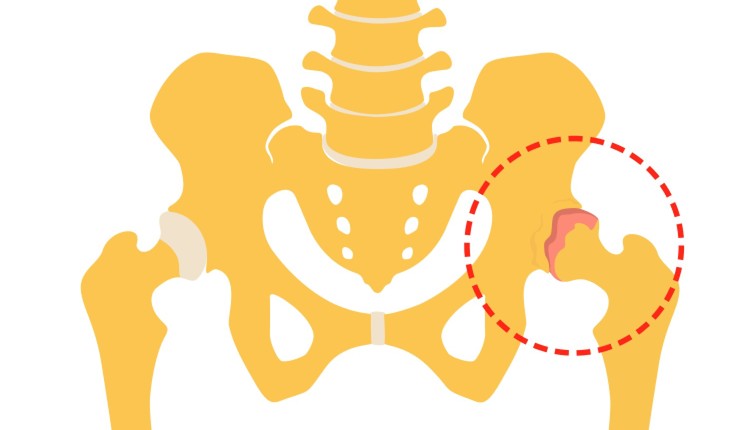
Many aspiring fitness professionals know the path they want to pursue in the industry, but once certified, find themselves trying to navigate the next best steps to get there. Here are six simple first steps that will help propel your new career.
1. Commit to your certifying agency
If you happen to be at the beginning of your fitness career and have not yet attained your certification, it's important to know the options available to you for certification. You'll want to have a good understanding of what requirements are needed to become a certified personal trainer and what organizations offer certifications. Here are five questions you'll want to answer prior to certification; these questions are also helpful as you pursue next-level certifications.
Which organization am I going to certify with? (Select based on the demographic you are interested in)
Within that organization, which certification am I going to pursue? (There are multiple from each organization)
What study materials do I need? (Practice exams, text books, CD-ROM, on-line tutoring, exam prep courses, etc.)
How much time do I need to study? (On average, most need six months, some vary)
When is my testing date? (Pick an appropriate date that allows time to study and prepare accordingly)
2. Professional liability insurance
Congratulations! You have now successfully studied for and passed your exam and are officially a certified personal trainer. The next step is selecting and obtaining professional liability insurance (PLI). Many fitness professionals ignore this step assuming that the company they work for covers them for any legal issues. Some companies provide full coverage and some do not, however, even if your company does provide insurance for their employees it may be all little as five or ten thousand dollars worth of coverage.
In this day and age professional liability insurance plans average between three and five million dollars worth of coverage as this is how much money is typically required to support a professional during a legal issue. It's worth the annual dues to get PLI and assure yourself that protection is there if needed. Do not get caught without insurance, as it can be a career-ending mistake.
3. Observation and internships
As a certified professional with professional liability insurance it is now time to get yourself into the business, get hands-on experience, learn the ins-and-outs of the industry and possibly obtain employment. A great way to achieve all of these objectives is by pursing an observation or internship with a hosting facility. The observation or internship should be with a company in which you have particular interest in their area of expertise. The fitness industry offers many areas in which a professional can choose as their "specialty" and there is no better way to learn about that particular area than by learning from someone who, as Alwyn Cosgrove describes, has "been there, done that and still doing it." Below you will see a list of some areas of expertise in which you may want to pursue.
- Olympic lifting, bodybuilding or powerlifting
- Fat loss or weight management
- Sports performance, endurance training or Strongman
- High Intensity Interval Training (HIIT) or Crossfit
- Tactical strength and conditioning (military, police, etc.)
- Suspension training or bodyweight training
- Strength and conditioning (team athletics)
- Youth development
- Corrective exercise/functional movement
- Special populations
children
older adults
pregnancy
individuals with disability or disease
4. Networking
Certified personal trainers are a small subculture within the close-nit community of the fitness industry. Networking is a great way to grow and develop your career in that it can provide many fitness-based opportunities. Networking is effective across many forums including the web and social media, however, the most common is at industry gatherings like conferences, clinics and events. Networking can lead to many great things, as you never know whom you might meet and what opportunities might come your way! Below is a list of potential benefits of networking.
- Job opportunities (entry level)
- Career development (upper management)
- Business partnerships
- Speaking/presenting opportunities
- Educational experiences (internships/mentorships)
- Authoring or publishing opportunities
- Professional development (marketing, sales, business, etc.)
5. Next-level certifications
Once the groundwork of your career has been laid, now it's time to take your career development to the next level. According to the ACSM 2012 Annual Report, next level certifications increase your potential annual revenue by nearly 20 percent, plus, it gives you another opportunity to improve yourself professionally while networking with other fitness peers. Next level certifications should be focused specifically in an area in which you have a particular interest and expertise.
Sample next-level certifications:
- Certified Special Population Specialist (CSPS)
- Tactical Strength & Conditioning Specialist (TSAC)
- Functional Movement Screen (FMS)
- USA Weightlifting (USAW)
- Corrective Exercise Specialist (CES)
- Total Body Resistance Exercise (TRX)
- Russian Kettlebell Challenge (RKC)
- C.H.E.K. Institute (Specialist)
6. Finding a job
Apply for as many of positions as possible. You never know which particular interview may lead to a fantastic opportunity even if the job description is not a perfect fit. As you continue to interview, you also gain valuable interview experience for your next opportunity. The more interview experience you get the better!
Remember, most positions as a new trainer are considered to be entry level. Exceed the expectations of the standard requirements that come along with your newly acquired entry-level position. Improve the quality of professionals in our field by being exceptional at your job. Take pride in what you do, be professional, hold yourself to a high standard and develop that "job" into a fantastic, thriving and successful "career."
Robert Linkul is the NSCA 2012 Personal Trainer of the Year and is the NSCA's Southwest Regional Coordinator. Robert has his master's degree in personal training and is an NSCA-CPT and CSCS with distinction. Linkul is an international speaker to fitness directors and certified personal trainers on career development. Read more about CPT career development at robertlinkul.blogspot.com.
1. Commit to your certifying agency
If you happen to be at the beginning of your fitness career and have not yet attained your certification, it's important to know the options available to you for certification. You'll want to have a good understanding of what requirements are needed to become a certified personal trainer and what organizations offer certifications. Here are five questions you'll want to answer prior to certification; these questions are also helpful as you pursue next-level certifications.
Which organization am I going to certify with? (Select based on the demographic you are interested in)
Within that organization, which certification am I going to pursue? (There are multiple from each organization)
What study materials do I need? (Practice exams, text books, CD-ROM, on-line tutoring, exam prep courses, etc.)
How much time do I need to study? (On average, most need six months, some vary)
When is my testing date? (Pick an appropriate date that allows time to study and prepare accordingly)
2. Professional liability insurance
Congratulations! You have now successfully studied for and passed your exam and are officially a certified personal trainer. The next step is selecting and obtaining professional liability insurance (PLI). Many fitness professionals ignore this step assuming that the company they work for covers them for any legal issues. Some companies provide full coverage and some do not, however, even if your company does provide insurance for their employees it may be all little as five or ten thousand dollars worth of coverage.
In this day and age professional liability insurance plans average between three and five million dollars worth of coverage as this is how much money is typically required to support a professional during a legal issue. It's worth the annual dues to get PLI and assure yourself that protection is there if needed. Do not get caught without insurance, as it can be a career-ending mistake.
3. Observation and internships
As a certified professional with professional liability insurance it is now time to get yourself into the business, get hands-on experience, learn the ins-and-outs of the industry and possibly obtain employment. A great way to achieve all of these objectives is by pursing an observation or internship with a hosting facility. The observation or internship should be with a company in which you have particular interest in their area of expertise. The fitness industry offers many areas in which a professional can choose as their "specialty" and there is no better way to learn about that particular area than by learning from someone who, as Alwyn Cosgrove describes, has "been there, done that and still doing it." Below you will see a list of some areas of expertise in which you may want to pursue.
- Olympic lifting, bodybuilding or powerlifting
- Fat loss or weight management
- Sports performance, endurance training or Strongman
- High Intensity Interval Training (HIIT) or Crossfit
- Tactical strength and conditioning (military, police, etc.)
- Suspension training or bodyweight training
- Strength and conditioning (team athletics)
- Youth development
- Corrective exercise/functional movement
- Special populations
children
older adults
pregnancy
individuals with disability or disease
4. Networking
Certified personal trainers are a small subculture within the close-nit community of the fitness industry. Networking is a great way to grow and develop your career in that it can provide many fitness-based opportunities. Networking is effective across many forums including the web and social media, however, the most common is at industry gatherings like conferences, clinics and events. Networking can lead to many great things, as you never know whom you might meet and what opportunities might come your way! Below is a list of potential benefits of networking.
- Job opportunities (entry level)
- Career development (upper management)
- Business partnerships
- Speaking/presenting opportunities
- Educational experiences (internships/mentorships)
- Authoring or publishing opportunities
- Professional development (marketing, sales, business, etc.)
5. Next-level certifications
Once the groundwork of your career has been laid, now it's time to take your career development to the next level. According to the ACSM 2012 Annual Report, next level certifications increase your potential annual revenue by nearly 20 percent, plus, it gives you another opportunity to improve yourself professionally while networking with other fitness peers. Next level certifications should be focused specifically in an area in which you have a particular interest and expertise.
Sample next-level certifications:
- Certified Special Population Specialist (CSPS)
- Tactical Strength & Conditioning Specialist (TSAC)
- Functional Movement Screen (FMS)
- USA Weightlifting (USAW)
- Corrective Exercise Specialist (CES)
- Total Body Resistance Exercise (TRX)
- Russian Kettlebell Challenge (RKC)
- C.H.E.K. Institute (Specialist)
6. Finding a job
Apply for as many of positions as possible. You never know which particular interview may lead to a fantastic opportunity even if the job description is not a perfect fit. As you continue to interview, you also gain valuable interview experience for your next opportunity. The more interview experience you get the better!
Remember, most positions as a new trainer are considered to be entry level. Exceed the expectations of the standard requirements that come along with your newly acquired entry-level position. Improve the quality of professionals in our field by being exceptional at your job. Take pride in what you do, be professional, hold yourself to a high standard and develop that "job" into a fantastic, thriving and successful "career."
Robert Linkul is the NSCA 2012 Personal Trainer of the Year and is the NSCA's Southwest Regional Coordinator. Robert has his master's degree in personal training and is an NSCA-CPT and CSCS with distinction. Linkul is an international speaker to fitness directors and certified personal trainers on career development. Read more about CPT career development at robertlinkul.blogspot.com.


















